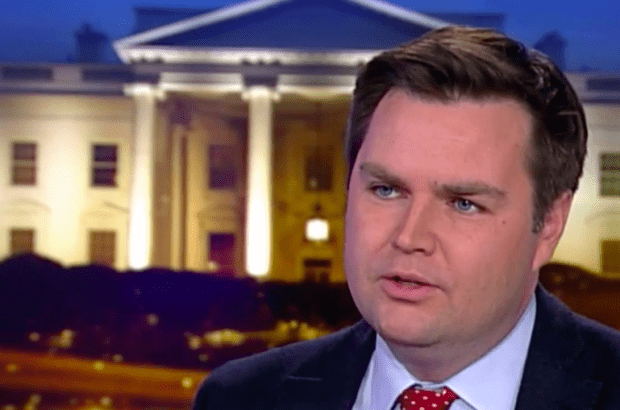The Dull Psyop Against J.D. Vance

J.D. Vance, the memoirist turned likely-Senate candidate from Ohio, is clearly set to face a torrent of questions about previously expressed sentiments denouncing Donald Trump, as he sets about to brandish his own brand of populism.
In a feature titled “Ohio Republicans question [J.D.] Vance’s viability in Senate race,” David M. Drucker of Washington Examiner airs the concerns, if not the projections, of a coterie of Ohio Republican consultants and conservative fixers. Put aside the propriety of publishing spinmasters, especially Republican ones, in any realm where foreknowledge is demanded. That was such a well-worn path in 2016, after all. Bear witness once again to such archetypal fare in in Politico, August 2016: “GOP insiders: Trump can’t win,” and the sublime, “Insiders: Trump has peaked,” that graced the same homepage on July 24, 2015.
But the assertions published would seem to range from the suitably mailed-in—“some may focus on, and question, whether Vance is ready for a leap into the political big leagues”—to the openly self-undermining. “But before Vance returned to Ohio, he spent several years living in California…. A Republican operative who supports a Vance rival recast his uplifting story this way: ‘You have an anti-Trump Californian trying to run as an Ohio MAGA supporter. It’s a big jump.’”
It would be true to say that Vance did not vote for Trump in 2016. But it would be fallacious to assert he did so in the spirit of the neoconservative outbursts of that era.
Rather than (literally) burning his party I.D. card, Vance can be recorded as writing “Trump speaks for those Bush betrayed.” In USA Today in February 2016, he made the case that “the usual Republican bromides won’t cut it.” Vance perceived that “[Ted] Cruz’s voters dislike Jeb Bush because he has strayed from conservative orthodoxy. Trump’s voters loathe Jeb Bush because their lives are falling apart.”
Also five years ago, Vance came to the conclusion that Trump wouldn’t be able to deliver on the populist promise of his campaign. That is: that Trump as president would disappoint, that his administration would be rickety, uneven, ridiculous.
Vance evidently later found more to like, pre-pandemic, about the hottest economy in a generation, and with realist trade and immigration policies, its tightest labor market. And later, during COVID’s misery, it’s said he found more to fear about the other side. He will have time enough to explain himself.
But if the crucible of Republican politics is an uninviting loyalty to Trump, while working in tandem to undermine the ideas that yielded him the only election he ever won, it may indeed be right that the outfit will soon go the “way of the Whigs,” as is unceasingly asserted. There is no shortage of apparatchiks who during the 2016 primary had anxiety attacks about the New York wheeler-dealer’s view of eminent domain, or the prudence of American policy in the Middle East, only to make a mendacious, partisan reversal that November. Five years later, they may even demand loyalty tests of candidates lest a political aspirant be declared “dead on arrival,” according to a reporter.
But chief among this bevy of assumptions is the conviction that the voter is stupid.